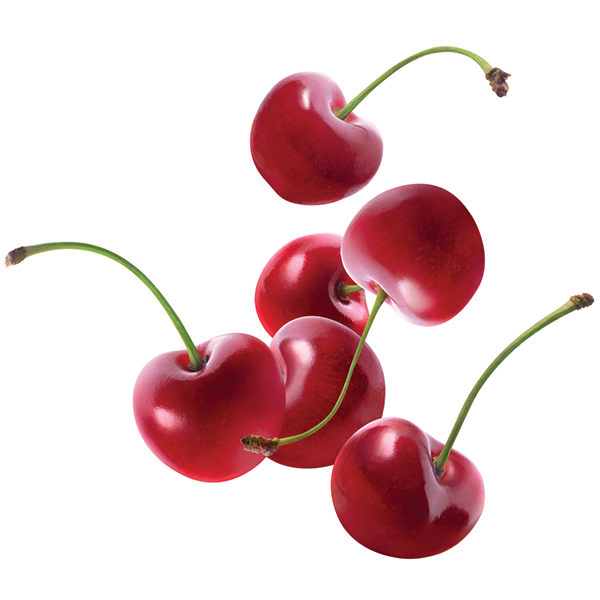
Organic cherries are a premium item and will appeal to affluent, health- and environmentally conscious consumers. Their high price point makes them an item unlikely to make it into the shopping baskets of many consumers. Sales are growing as the prices come down.
Organic cherries are popular for a variety of reasons. They can be a tasty snack as well as a tasty ad-dition to baked goods. Include them in baking promotions with organic baking ingredients.
Organic cherries are available during the summer and into fall, so make the most of them while they are in your store. Include them in Memorial Day, Fourth of July and Labor Day promotions. Nothing says summer holidays like cherry pie. Promote them as a topping for ice cream and as a quick, easy snack for families on the go.
Promote organic cherries as soon as they hit the shelves in quantity to attract consumers who are wait-ing for cherry season to start.
Display organic cherries with other similarly priced organic fruits. This keep sticker shock to a minimum for consumers. Create a separate display for those fruits or consider displaying cherries in an organics-only section.
Cherries come in a multitude of varieties. Clearly label your display with variety information and some details about the best use and the flavor of each variety.
Be sure to offer clamshells and bags on your display. Bulk cherries create a slipping hazard when fruit hits the floor. Packaging ensures that the displays look neat and product stays on the table. Keep organic cherry pack sizes smaller to offset the higher price. Avoid stacking clamshells to keep from bruising the fruit.
Organic cherries require refrigeration. Misting them will cause early decay so keep them dry. Organic cherries don’t like sunlight or fans, so keep them away from both.
Organic cherry season is short, so make sure consumers know they are available. Give cherries a place near the front of the department when supplies are at their peak.
Shipping
Organic cherries are most often shipped in 12, 1.5-pound clamshells or in 18-pound cartons.
Grades
United States
U.S. grades
U.S. No. 1
U.S. Commercial
Washington grades
Washington No. 1 (more stringent than U.S. grades)
Handling
Temperature: 32 F, 0 C
Relative humidity: 90-95%
Mist: no
Typical shelf life: 10 to 14 days
Odor-sensitive. Sweet cherries may pick up off-flavors from shipping or storage with commodities that have strong odors.
Modified atmosphere poly liners should be slit when product is received to eliminate gas buildup and off-flavors. Open the lids of cherry boxes stored in the cooler; good air circulation will slow spoilage.
Don’t break cherry stems. Cherries with stems have a greater shelf life than those without.
It is normal for rainier cherries to have some skin discoloration, slight scuffing or brown spotting, and it often indicates high sugar content. Cherries that are mahogany or reddish brown are considered to be the most flavorful.